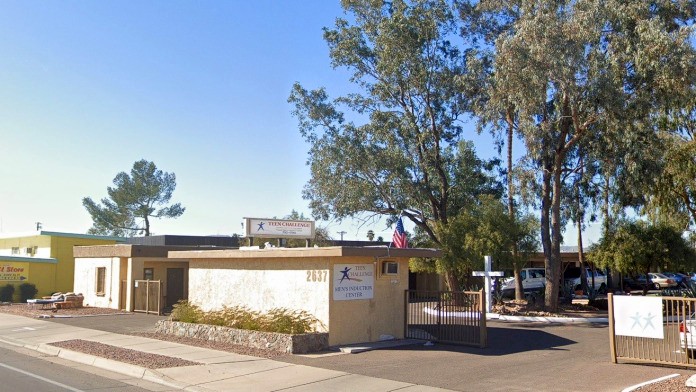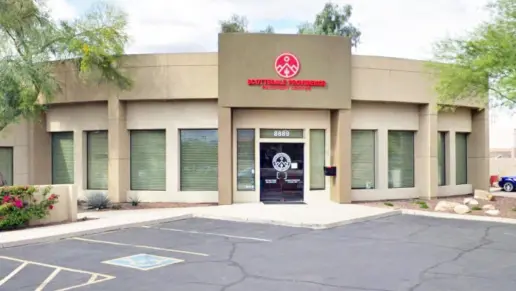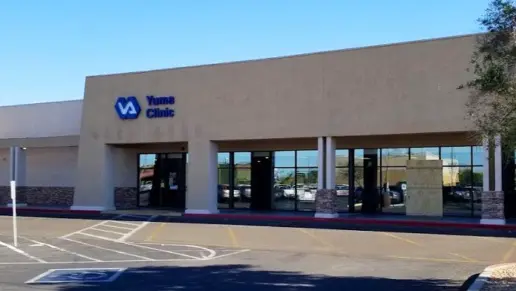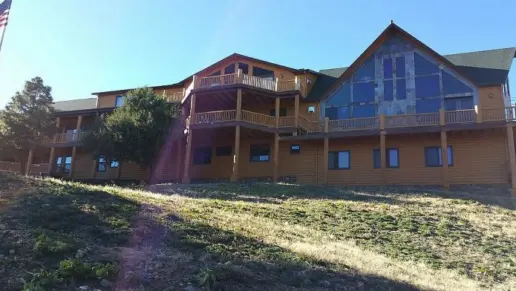Teen challenge is miraculous. It has helped improve my sons attitude towards life and towards addiction! He has been clean and sober for about three years now because of this program! Thank you so much to all the counselors and the staff and also the other patients that help ...
About Tucson Teen Challenge – Men’s Induction Center
Tucson Teen Challenge - Men’s Induction Center, located in Tucson, Arizona, offers alcohol and drug rehab programming to men seeking recovery. This is a faith-based treatment center that focuses on the teachings of Jesus Christ.
Tucson Teen Challenge – Men’s Induction Center helps individuals through focusing on the emotional, physical, and spiritual aspects of overcoming addiction. Their programming is offered in a residential treatment format.
Residential Treatment
The residential program requires men to live on site and participate fully in the program. Treatment focuses on discipline, the teachings of Jesus Christ, life skills, personal growth, mentorship, practical skills, chapel services, and ethics. Clients also receive mentorship from other men.
Private Insurance
Tucson Teen Challenge – Men’s Induction Center does not accept insurance. They rely on the donations of others to support their cause. If a person is interested in using insurance for any type of addiction or mental health treatment, it’s important to verify coverage with his or her insurance provider prior to starting treatment.
Rehab Score
Gallery

Location
Other Forms of Payment
Self-pay involves paying for treatment out of your own pocket. You can use savings or credit, get a personal loan, or receive help from family and friends to fund your treatment. If you don't have insurance or your insurance plan doesn't cover a specific program, self-pay can help ensure you still get the care you need.
Financial aid can take many forms. Centers may have grants or scholarships available to clients who meet eligibility requirements. Programs that receive SAMHSA grants may have financial aid available for those who need treatment as well. Grants and scholarships can help you pai for treatment without having to repay.
Sliding scale payments are based on a client's income and family size. The goal is to make treatment affordable to everyone. By taking these factors into account, addiction recovery care providers help ensure that your treatment does not become a financial burden to you or your family, eliminating one barrier to care.
Addiction Treatments
Levels of Care
Treatments
The goal of treatment for alcoholism is abstinence. Those with poor social support, poor motivation, or psychiatric disorders tend to relapse within a few years of treatment. For these people, success is measured by longer periods of abstinence, reduced use of alcohol, better health, and improved social functioning. Recovery and Maintenance are usually based on 12 step programs and AA meetings.
Drug rehab in Arizona is the process of treating individuals who are dependent on a particular addictive drug. Because addiction is complex, this treatment typically includes a variety of interventions that address the many physical and emotional issues involved.
A combined mental health and substance abuse rehab has the staff and resources available to handle individuals with both mental health and substance abuse issues. It can be challenging to determine where a specific symptom stems from (a mental health issue or an issue related to substance abuse), so mental health and substance abuse professionals are helpful in detangling symptoms and keeping treatment on track.
Opioid rehabs specialize in supporting those recovering from opioid addiction. They treat those suffering from addiction to illegal opioids like heroin, as well as prescription drugs like oxycodone. These centers typically combine both physical as well as mental and emotional support to help stop addiction. Physical support often includes medical detox and subsequent medical support (including medication), and mental support includes in-depth therapy to address the underlying causes of addiction.
Programs


Clinical Services
Group therapy is any therapeutic work that happens in a group (not one-on-one). There are a number of different group therapy modalities, including support groups, experiential therapy, psycho-education, and more. Group therapy involves treatment as well as processing interaction between group members.
Recreational therapy (aka therapeutic recreation) uses creative and fun activities to help with addiction recovery. Recreational therapists lead patients in entertaining and engaging activities like sports or games; art (drawing, painting, sculpture); drama, music, and dance; and/or community outings (field trips) to improve patients' physical, social, and emotional well-being.
Amenities
-
Residential Setting
-
Private Setting
-
Hiking
Contact Information
2637 North Oracle Road
Tucson, AZ 85705


